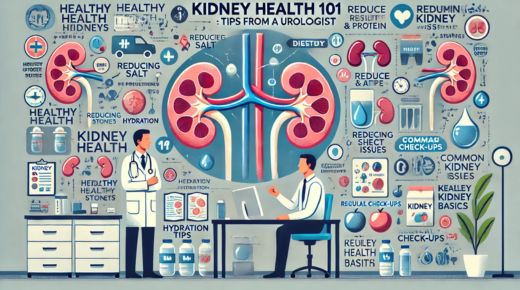Kidney Health 101: Tips from a Urologist
Caring for your kidneys is vital for overall health. The kidneys work hard every day. They filter waste and help balance your body’s fluids. In this blog, I will share insights from advanced urology that can keep your kidneys in top shape. Understanding kidney health can prevent problems before they start. Let’s explore some simple tips to ensure your kidneys stay strong and healthy.
Understanding Kidney Function
The kidneys are two bean-shaped organs located in your lower back. They are essential for removing waste products and excess fluid from your blood. The kidneys also regulate various minerals, such as sodium and potassium. They produce hormones that help control blood pressure and red blood cell production. When the kidneys are not functioning well, waste products and fluid can build up in the body, leading to serious health issues.
Signs of Kidney Problems
Recognizing the signs of kidney trouble can lead to early intervention. Some common symptoms include:
- Fatigue and weakness
- Swelling in the ankles, feet, or hands
- Changes in urination patterns
- Persistent itchy skin
- High blood pressure
If any of these symptoms appear, consulting a healthcare provider is important.
Tips for Maintaining Kidney Health
Here are some practical steps to help keep your kidneys healthy:
- Stay Hydrated: Drinking enough water helps kidneys clear sodium and toxins.
- Eat a Balanced Diet: Focus on fruits, vegetables, and whole grains. Limit salt, sugar, and processed foods.
- Exercise Regularly: Physical activity helps control blood pressure and maintain a healthy weight.
These habits support the kidneys in performing their vital roles efficiently.
Common Kidney Disorders
Understanding common kidney disorders helps in their prevention and management. Here is a comparison of two prevalent conditions:
| Condition | Causes | Treatment |
| Chronic Kidney Disease (CKD) | Diabetes, high blood pressure, and infections | Medication, lifestyle changes, and dialysis in advanced stages |
| Kidney Stones | Dehydration, certain diets, and heredity | Increased water intake, pain management, and medical procedures if needed |
When to See a Urologist
Consulting a urologist can provide targeted care for kidney issues. A urologist specializes in the urinary tract and male reproductive organs. Seeing a specialist is beneficial for persistent symptoms or complex conditions. Early intervention can prevent complications and improve outcomes.
For more information, consider visiting the National Kidney Foundation website. They provide resources and support for kidney health awareness.
Conclusion
Taking care of your kidneys is crucial for long-term health. Simple lifestyle changes can have a big impact. Understanding kidney function, recognizing symptoms, and making healthy choices are key steps. If issues arise, consulting a healthcare professional is important. By staying informed and proactive, your kidneys can continue to function well through life’s many stages.

